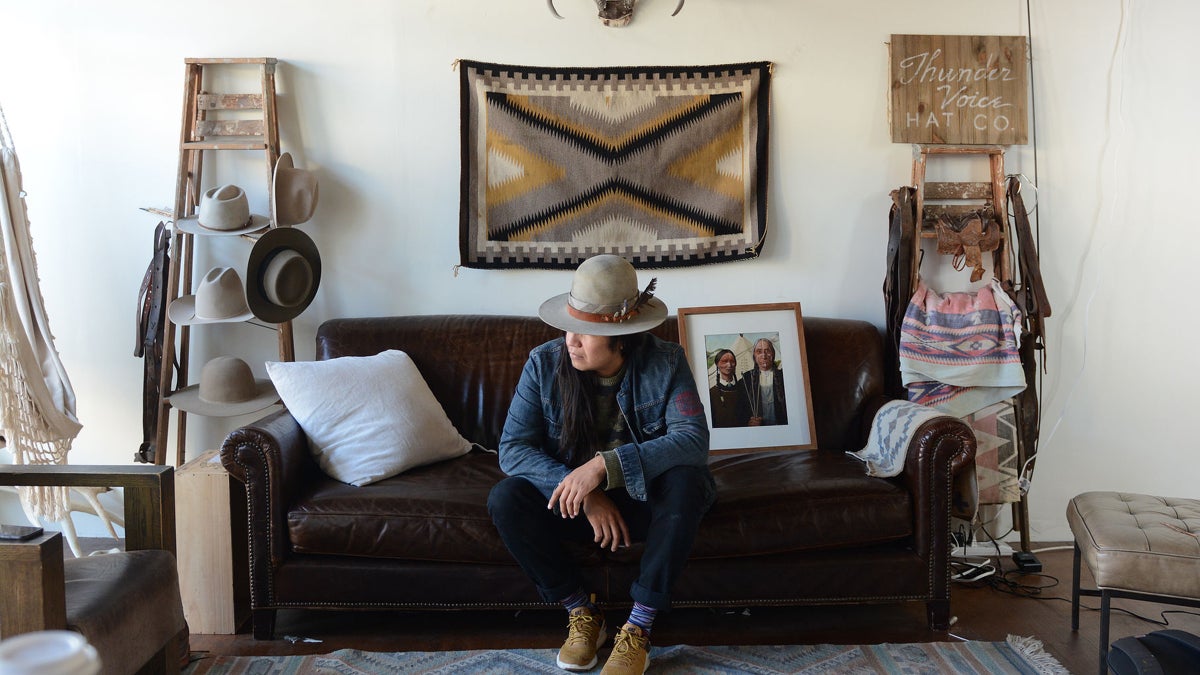
By celebrating Indigenous values and history, these brands are keeping traditions alive, reclaiming cultural designs, and sharing them authentically through modern Indigenous perspectives. When you support companies like these, it benefits the entrepreneurs, artists, creators, communities, and the initiatives they champion. Here are six brands that aren’t just making awesome things, but also making an impact.
ThunderVoice Hat Co.
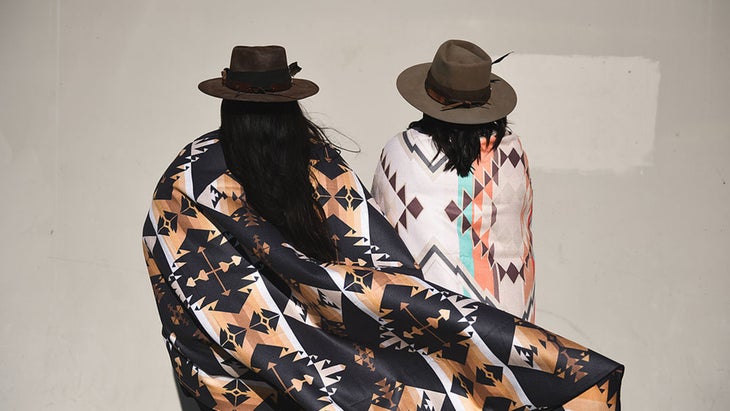
Known for its impossibly cool upcycled vintage hats (which are hand-sourced, steamed, shaped, adorned, and hard to score), ThunderVoice Hat Co. has a sustainable approach to business. The brand gives new life to discarded items and materials by reclaiming and rebuilding them with purpose.
The Desert Recycled Camp Blanket ($97) is a 100 percent recycled microfiber blanket featuring a reversible design (one side represents day, the other night) created by Diné artist and founder Lehi ThunderVoice Eagle. Large (70 inches by 60 inches) and versatile, the blanket doubles as a big towel or an extra layer on chilly nights. And because it doesn’t cling to dirt and sand, dries quickly, and wicks moisture, it’s a good companion for family hangouts at the beach or car-camping trips. Each blanket also comes with a matching drawstring bag for storage.
Manitobah Mukluks
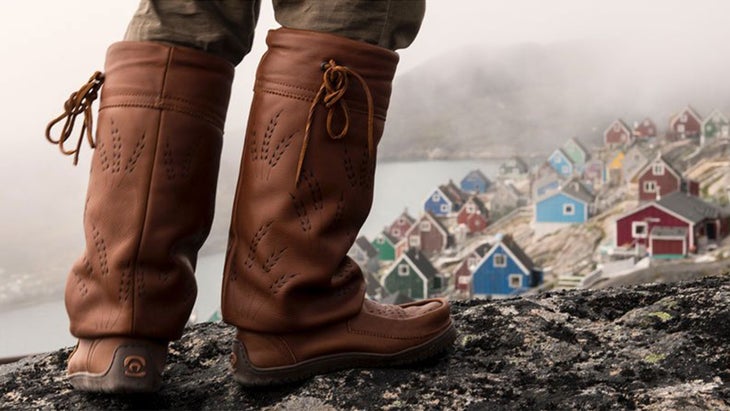
Headquartered in Winnipeg, Métis-founded Manitobah Mukluks knows a thing or two about staying warm. (Winnipeg broke a 140-year-old cold-weather record this year with a temperature of -38F.) Featuring generations-old beadwork designs and silhouettes, the brand makes winter boots, moccasins, slippers, mitts, and gloves that are beautiful and cozy.
Manitobah’s Waterproof Tamarack boots ($280) will hold up for years in harsh Canadian winters. (With feet that felt impervious to the elements, I trudged through slush, deep snow, and in temperatures that dipped below sub-zero with my mukluks.) The Tamaracks have sheepskin-lined footbeds, Vibram soles, and a proprietary waterproofing system inspired by pine pitch and spruce gum—traditional materials used by the company founder’s Métis ancestors. That’s about as winter-proof as it gets.
Tanka Bar
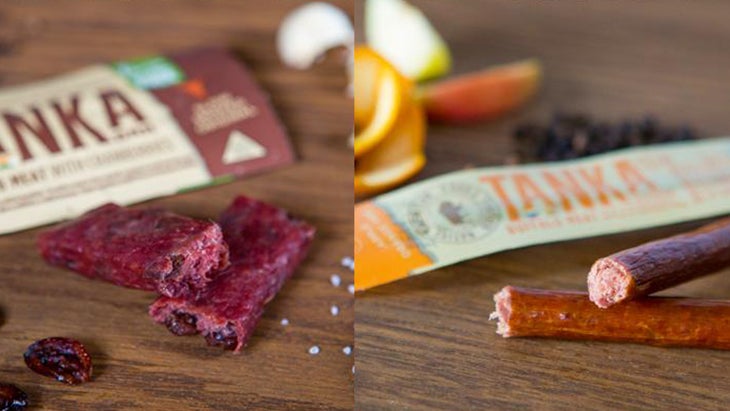
From the Pine Ridge Reservation in South Dakota, Tanka Bar combines prairie-fed bison and sweet-tart cranberries into high-protein bars, bites, and sticks to fuel a backpacking trip or day of climbing. Based on traditional wasná (pemmican), all of Tanka’s on-the-go snacks are gluten-, nut-, dairy-, antibiotic- and nitrate-free. The variety gift box ($60) lets you sample a little bit of everything in flavors like spicy pepper, slow-smoked original, and apple orange peel.
Through its nonprofit, Tanka Fund, the company is working towards converting one million acres of prairie land to regenerative agriculture, returning buffalo to Native lands, lives, and economies.
Eighth Generation
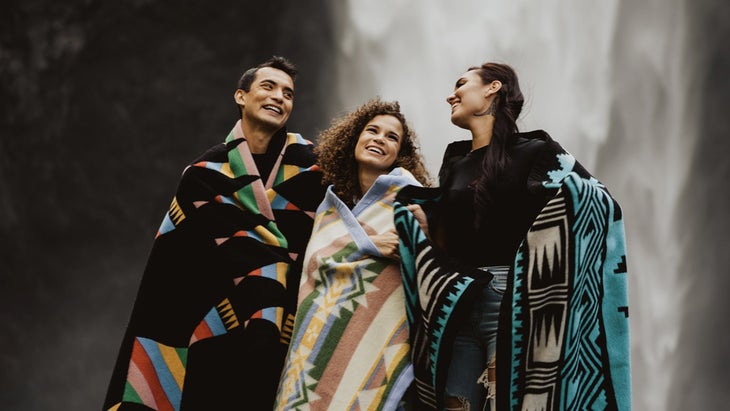
If you’ve ever come across the #InspiredNatives hashtag, thank Eighth Generation (the full tagline is “Inspired Natives, not Native-inspired”). The Seattle-based company owned by the Snoqualmie Tribe partners with community-based Indigenous artists around the country to design wool blankets, shirts, towels, jewelry and other lifestyle items. It was the first Native-owned company to produce wool blankets, and its Gold Label collection features wool textiles manufactured right in its Seattle studio, like the 100 percent merino wool Mountain Scarf ($120) with double-sided designs by Plains Indian graphic artist John Isaiah Pepion (Blackfeet).
Eighth Generation’s Inspired Natives Project is an initiative that expands artists’ business capacity while addressing the economic impact of cultural appropriation. And its Decolonizing Partnership Model sets the standard for how larger companies can create ethical partnerships with Indigenous artists and entrepreneurs that are culturally responsive, sustainable, and mutually beneficial.
Thunder Island Coffee Roasters
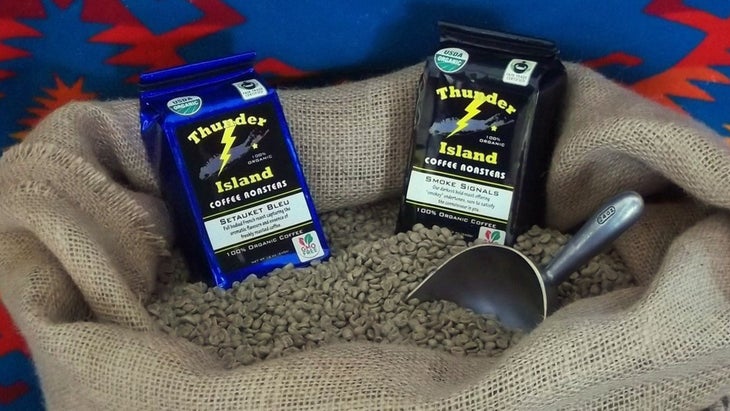
Located on the Shinnecock Indian Reservation in South Hampton, New York, Thunder Island Coffee Roasters is a Native American-owned organic and fair trade coffee roasting company. The brand purchases green arabica beans from Indigenous family-owned coffee farms in Guatemala and Peru in what the company calls a “Native to Native exchange” that supports Indigenous communities on both sides of the transaction.
Thunder Island creates six blends and roasts from high-mountain grown coffee: Smoke Signals, Shinnecock Hills, Setauket Bleu, Rockaway Roast, Montauk Blend, and Canarsie Blend. The six-pack sampler set ($15) lets you try their full lineup. Pre-ground into two-ounce packages, they’re a convenient size to take along on weekend camping trips or traveling.
NativesOutdoors
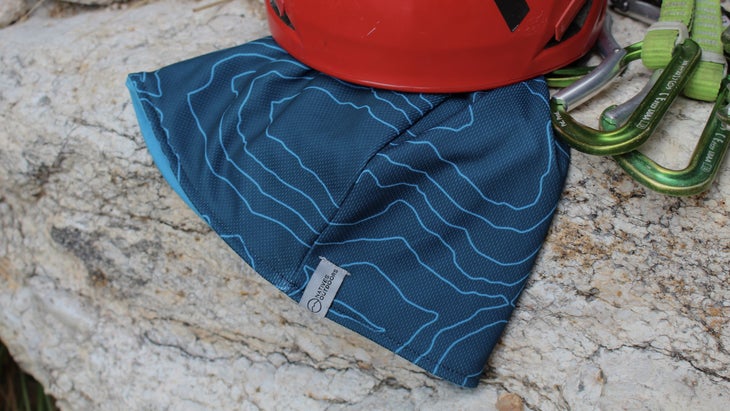
One of the four core values of NativesOutdoors is “Hokahey”: be bold, drop in, and send it. What started as a social media project to address the lack of representation of Indigenous people in outdoor spaces has grown into a larger mission to revitalize cultural vitality in communities by supporting Indigenous-led initiatives and working with Indigenous designers, artists, and creators. Among its many partnerships, NativesOutdoors has a roster of Indigenous athletes championing outdoor recreation and advocating around public lands.
In support of this mission, its products are functional and straightforward: branded Yeti Ramblers, face masks, chalk bags, and homegrown tees. The Twisted Juniper tee ($34) is made from certified organic cotton with a 100 percent traceable supply chain. The reversible White Shell mountain beanie ($22) has a topographical line design on one side and a mountain motif on the other, and it fits under a helmet—perfect for chilly mornings at the crag.
The post 6 Indigenous-Owned Outdoor Brands You Should Know About appeared first on Outside Online.
